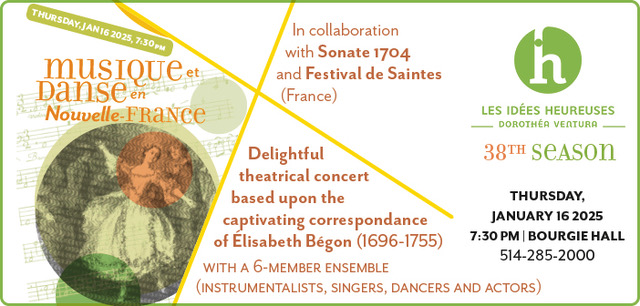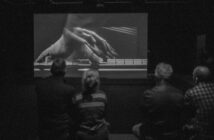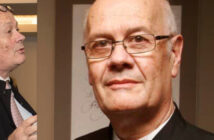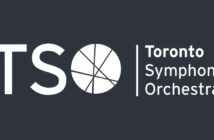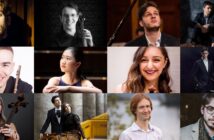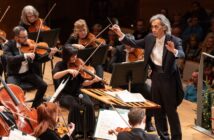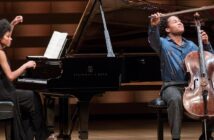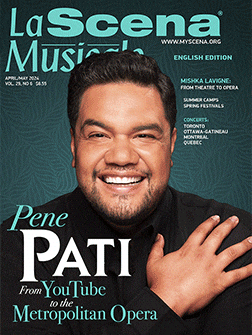
This page is also available in / Cette page est également disponible en:
![]() Francais (French)
Francais (French)
Navigating the worlds of hip-hop music production, academia, and arts management, CEO Mark Gillespie has founded and led a range of innovative cultural and educational enterprises, including the Global Leaders Institute (GLI) and OAcademy Music Conservatory. A lover of all things Quebec, including his favourite bagel shop in Magog, Gillespie has broken ground in global arts leadership and music education.
“My father was a diplomat, and my childhood involved spending three years at a time in different parts of Asia. Wherever we moved, my parents put my brothers and me in piano lessons. Music was a constant in my life growing up,” says Gillespie.
On settling back in Washington, DC, Gillespie became known to his classmates at The Potomac School for his musical skills and cultural exposure. It was not until he started taking composition lessons at Georgetown’s Levine School of Music that he discovered his identity as a musician. By then, “composing and improvising became a big part of who I was,” he explains.
Growing up with eclectic tastes—listening to music ranging from Liszt’s arrangements of Wagner operas to the popular melodies of Neil Diamond—Gillespie fell in love with the songwriting and hit-making processes in his late teens. “By the time I finished high school, I had an equal passion for composing, in the traditional sense, and songwriting and record producing,” continues Gillespie. This focus led him to pursue record producing and songwriting with Rodney Jerkins, “one of the great hit makers of the early 2000s.”
His apprenticeship with Jerkins outside New York lasted almost two years, during which Gillespie helped Jerkins write songs, “make the beats,” and record the artists who came to work at Darkchild Studios. When Jerkins relocated his studio to Los Angeles, Gillespie moved to Quebec City, where he wrote his Master’s thesis on his experience at Darkchild. His supervisor at Université Laval, Professor Serge Lacasse, shared Gillespie’s affinity for popular music and “understood how beautiful, complex, sophisticated, and incredible it was to create something that the whole world loved. People don’t appreciate how complicated it is to come up with something that perfect,” says Gillespie.
Upon completing his M.Mus, Gillespie traveled to Norway to study record production at the University of Stavanger, intending to work with legendary Swedish producer Max Martin. Not even a year into his second Master’s, however, Gillespie suddenly lost most of his hearing on one side due to a head injury, effectively ending his dreams of working in record studios. “I lost the joy and the physical ability because building layers of sound is such a nuanced thing. That created an existential crisis in my mid-20s,” recounts Gillespie.

Mark Gillespie
Through an invitation from a friend, Gillespie became involved in managing a chamber music festival in Norway. As a co-producer, co-organizer, and promoter, Gillespie developed an interest in arts management. This experience proved valuable when he was invited to join The Orchestra of the Americas Group (OA) on a summer concert tour through Europe. During 6-weeks of concerts and recordings with Plácido Domingo and other stars, he witnessed young Latin American musicians playing Beethoven with the same energy and common touch he was used to seeing and hearing at popular music concerts. This awakening “changed the trajectory of my life,” he says.
Gillespie’s intercultural abilities and penchant for problem-solving caught the eye of the OA board, and he was soon co-managing OA’s work to identify, train, and showcase rising musical talents from all corners of the Americas in a full-time role. “I felt at home working as a cultural bridge in classical music with a popular heart. I fell in love with the project, which allowed me to grow to not only become CEO, but to create a range of new initiatives along the way that are carrying the organization forward.”
The experience of developing and leading tours across more than forty countries on four continents with the OA allowed Gillespie to build a global network of national partnerships, working with policy-makers and business leaders to launch new orchestras in Colombia, Jamaica, the Dominican Republic, Mexico, the United Arab Emirates, and elsewhere. Collaborating with corporate partners across Latin America and beyond, Gillespie discovered a strong interest in helping realize talent and fufill human potential through the arts.
“Across all sectors, leaders who have achieved remarkable feats understand that there are incredible talents out there waiting to be developed — including within the arts,” observes Gillespie. These leaders connect with the need “to identify diamonds in the rough and polish them by giving them the investment they need to forge successful career paths that make a positive mark on the world,” explains Gillespie.
To support this mission, the board of the OA consists of global entrepreneurs “ready to help us adapt and respond to educational market opportunities and needs in the fastest way possible.” To further develop his entrepreneurial mindset, collaborator and friend Marie-Josée Desrochers (CEO of Place des Arts) recommended Gillespie to the McGill-HEC Montréal Executive MBA (EMBA). Encouraged by OA Board Chair Hilda Ochoa-Brillembourg to apply, Gillespie won the next edition’s annual EMBA scholarship for cultural leaders, following in the footsteps of past recipients, including Desrochers and Sophie Galaise (CEO of the Melbourne Symphony), with whom Gillespie had collaborated at the Quebec Symphony.
Gillespie describes the McGill-HEC EMBA as “the only top-level, brand-name MBA in the world to offer one annual scholarship to a leader from the cultural sector.” His journey in the McGill-HEC EMBA opened insights that helped Gillespie build The Global Leaders Institute (GLI) into what it is today. When he started the bilingual program, jointly taught on the campuses of McGill in English and at HEC in French, Gillespie was already developing the GLI as a means of helping emerging artists build leadership skills “by sending them out into the field to teach and volunteer in different places. It was like a Peace Corps for the arts,” he adds.
Through his experiences at McGill-HEC, Gillespie saw an opportunity to expand the GLI into a full-fledged Arts MBA tailored to the unique needs of cultural leaders. Gillespie explains that the EMBA inspired much of the foundational structure of the GLI learning experience. Living abroad, he would complete coursework remotely, engage with classmates over Zoom, and fly once a month for a weekend intensive in Montreal. This process created a first-hand belief in the effectiveness of hybrid training, and Gillespie quickly realized that the GLI could translate “the experience that I had in the EMBA into the world’s first MBA for the Arts. It took time to pilot, refine, and accredit, but step-by-step, we eventually got there.”
Today, the Global Leaders Institute offers a 12-month MBA in Arts Innovation to a competitively selected annual cohort of 70 arts leaders from across the globe. GLI fellows include the CEOs of flagship arts organizations like the Abu Dhabi Festival, Colombia’s Fundación Batuta, and The United Kingdom’s Live Music Now.
The Global Leaders Institute’s instruction model, explains Gillespie, is “to source instruction partnerships with the best universities in the world to teach the courses within our Arts Innovation MBA.” With modules led by iconic institutions like Georgetown University’s School of Management, Stanford University’s Center for Social Innovation, and The University of Chicago’s Department of Economics, the GLI brings expert guidance to arts entrepreneurs from disciplines cultural leaders rarely can access. “The unique tools, frameworks, and perspectives these fantastic universities and institutes provide make the GLI learning experience so transformative for fellows from the arts world,” says Gillespie.
Another defining aspect of the GLI is its relative affordability, compared to other MBAs, for a program of its calibre. Through a combination of privately funded scholarships and fundraising, the GLI Arts MBA offers a high-end experience at a fraction of the price of an equivalent, top-tier MBA. This feature is in keeping with a critical part of GLI’s mission to remain globally accessible.
While the GLI cohort has expanded to include global leaders from various corners of the cultural sector, including dance, film, museums, and more, for Gillespie, it started with music and music education. “The reason that classical music training is so powerful for young people anywhere in the world,” explains Gillespie, “is that it teaches you that you’re not going to strike gold overnight, that the path to greatness requires hundreds of thousands of small steps along the way. That’s a great quality for life,” he notes.
Building on his values, experiences, entrepreneurial background, and belief in music as a tool for growth and empowerment, Gillespie founded the OAcademy Music Conservatory. OAcademy’s mission is simple: democratize access to top-level music education for top-level talents worldwide.
Gillespie recognizes the inequities created by elite institutions in a few “very costly cities like New York that have held the monopoly on what top-level training in music looks like.” OAcademy aims to increase access to higher music learning in underprivileged regions where talents abound. “Talent is evenly distributed. Opportunity is not—and I mean opportunity in terms of training because to find top jobs and to build game-changing careers, regardless of location, you first need to access the best training,” he adds.
Like GLI, OAcademy harnesses a hybrid learning model that combines interactive online instruction led by a world-renown faculty—including cellist Yo-Yo Ma, pianist Gabriela Montero, and numerous principals and soloists of leading American and European orchestras—with opportunities for in-person gatherings, concerts, training, and rehearsals. The 2024 edition of OAcademy features residencies in Switzerland, Spain, Maryland, Mexico, and Michigan — which includes a week of rehearsals that lead to concert premier with Yo-Yo Ma on June 11. An initiative of the Orchestra of the Americas Group, the innovative conservatory is divided into four divisions: an Orchestra Institute, a Piano Lab, a Composition Studio, and a Conducting Fellowship.
OAcademy fellows currently earn an Artist Diploma, which aims to address the increasingly wide gap between traditional conservatories and the demands of the professional world. Soon, OAcademy will expand its curriculum to offer “the first Master’s of Music and Performance Leadership: a world-class, global, high-calibre graduate degree that the most talented musicians can access from anywhere in the world,” says Gillespie.
While OAcademy focuses on empowering “overlooked talents” from underserved regions, admission is not limited to students who fit this profile. “Part of the way that you grow and learn is by studying next to a fellow talent from Montreal or New York. You create a world-class conservatory by making it competitive, open to the world, and allowing the best and the brightest to get in,” says Gillespie.
Much like the GLI, the costs of earning an Artist Diploma from any of the OAcademy’s four programs are considerably lower than those at elite institutions with a faculty of comparable stature. However, Gillespie explains, the conservatory threads a fine line between their philosophy of accessibility and the importance of teaching an entrepreneurial, self-empowered mindset.
GLI and OAcademy want applicants and fellows to understand that personal growth requires commitment. By making both a financial and time investment, explains Gillespie, “fellows understand how important the quality of their learning experience is, without pricing out their ability to take part. A fellow’s commitment to their growth journey increases as personal investment rises. This marketplace model ensures we always put our fellows’ goals and outcomes first by constantly reinvesting to expand the calibre of our training.”
Gillespie credits the joint McGill-HEC EMBA as his “educational North Star”—a guiding light throughout building these and other ventures. In fact, Gillespie’s final project at the EMBA was mapping out a plan to grow the Global Leaders Institute into an MBA. Working with a diverse team of business school classmates ranging from video-game producers to aerospace engineers on the plan, the GLI’s growth path still closely resembles what they modeled to this day. “I’m enormously grateful for that experience at McGill and HEC, which continues to inform how I think as an entrepreneur daily. So, I’m delighted to tell this story, which owes so much to my time there,” concludes Gillespie.
For more information on programs, faculty, and participants at both the Global Leaders Institute and the OAcademy: www.globalleadersinstitute.org; oacademy.live
This page is also available in / Cette page est également disponible en:
![]() Francais (French)
Francais (French)


